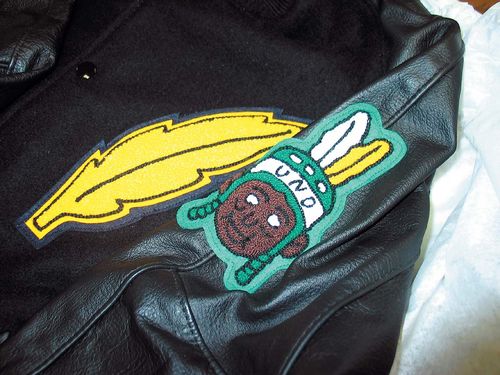COMMENTARY: Anti-UND banter at Bison rally? Really?
UND may have put away its lightning-rod symbols, but Saturday’s victory chant by some Bison faithful suggests the rivalry is still a ready-to-ignite ember.
By: Kevin Schnepf
It was obvious he did not prepare a speech. Struggling to find the words, he blurted in a bit of a panic: “Sioux suck.”
Really? You’re nearly 1,000 miles away from Fargo, your team just wins a national championship, and that’s all you can think of to say.
Flash forward 22 years in Frisco, Texas—where NDSU won its first national championship since its 1990 trip to Florence. As the Bison team marched toward its locker room before the game, the three-block long line of fans chanted “Here We Go Bison, Here We Go.” In between the cheers, one fan yelled “Sioux suck.”
Really? Your team is about to play for a national title and that’s all you can think of? Never mind that your team hasn’t played the Sioux (I mean North Dakota) since 2003.
Later that same day when fans gathered in front of the Fargodome to welcome home their team, Gov. Jack Dalrymple started the same cheer “Here We Go Bison, Here We Go.” Little did the Governor realize that the chant must mysteriously spark a certain impulse to be insulting.
As if on cue, a small group of supporters started yelling “Sioux suck.”
Really? Your team just won its first Division I championship and that’s all you can think of. Never mind that your football team may not be playing the Sioux (I mean, North Dakota) for at least another decade.
We shouldn’t be shocked by all of this. The chant, considered even more derogatory because of the Indian heritage, has been uttered thousands of times during the 109-year-long Bison-Sioux (I mean, North Dakota) football rivalry.
And there’s probably no way for school officials to prevent it when the schools’ men’s basketball teams play each other a week from today in Grand Forks.
But why do certain Bison fanatics insist on chanting the phrase when their team isn’t even playing UND, when their team is celebrating something much bigger than a win over their rival, or when their team isn’t even scheduled to play them in football again?
Perhaps the only answer to that is this: The rivalry—much like the Sioux nickname itself—will not disappear. Perhaps those chants we keep hearing are signals that people still crave for the days of a football game between the Bison and Sioux (I mean, North Dakota).
Many Americans are ignorant of or actively dislike Indians, deeming them savage, drunk, greedy, and so forth. Mascots such as the "Fighting Sioux" give them a socially acceptable way of venting their spleen. Sure, part of their antipathy is directed at the UND sports team(s), but the other part is directed toward Indians as a minority.
For those who don't feel negatively about Indians, the "Sioux sucks" chant may create such feelings. It's called desensitizing. If you repeat an insult often enough, it becomes the reality in your mind. People weren't born thinking the Polish were "dumb Pollacks" and the Vietnamese were "gooks." These beliefs became semi-acceptable through repetition.
In any case, "Sioux Suck" shows the problem with mascots. Even if the school rigorously controls what appears at games, it can't control the fans' thoughts. Fans feel free to attack the "Sioux," calling them names and wishing them ill. That's okay for animals and occupations, but not for a real group of people. Minorities already have enough problems without fans announcing that they "suck."
For more on the Fighting Sioux, see Mascot Foes Want to Destroy Lakota?! and Origin of "Fighting Sioux."
Below: "Sammy Sioux," an early version of the Fighting Sioux mascot.


No comments:
Post a Comment